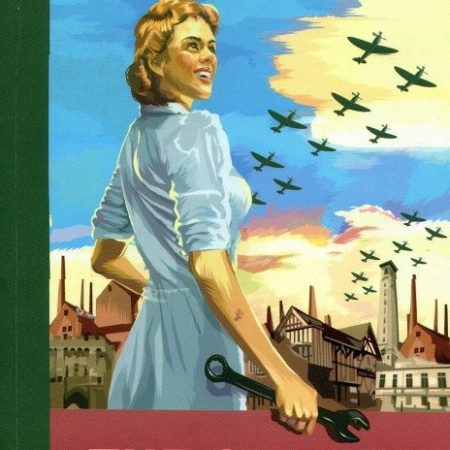To discover that history is an inspiration for drama is hardly surprising. Just think of Shakespeare (who, incidentally, faced outbreaks of plague by taking his plays to the shires). What is perhaps a surprise, however, is that Hampshire is becoming a place for new productions based on historical themes.
It has taken budding Bards some while to latch onto the county’s huge reservoir of stories. But there are now several playwrights finding inspiration from the county’s past.
Recent examples staged in Southampton include plays about Titanic, the Spitfire – even one based on a technical invention – as well as the close relationship between Shakespeare and Henry Wriothesley, the 3rd Earl of Southampton, seated at Place House, Titchfield.
The trend really got underway in about 2018 when renowned playwright Howard Brenton wrote The Shadow Factory for the NST Nuffield, Southampton. Most recently, Cecily O’Neill has staged a studio reading of her play Lewd Women & Female Felons at the same place (Hampshire Chronicle, February 6, 2020).
Her play is a telling reminder of the punishment for bastardy in the late 18th century, even when it resulted from sexual abuse–twelve months’ hard labour at least–that is, for the woman, not the father.
Much of it echoes the pamphlet ‘Pining in want & dungeon glooms’: The County of Southampton Bridewell, Hyde, Winchester (University of Southampton and Hyde900, 2018), which is based on ‘official reports, detailed lists of prisoners, correspondence from officials and journals of the various keepers’ in the HRO.
With a tweaked plot, however, Lewd Women could have been set at any time. In late Victorian Hampshire it might have focussed on the Winchester Refuge for Penitent Women, North Walls. The assumption of the day was that the women had “fallen” and needed to “repent”.
Cecily’s earlier play, A Fruitful Season: Keats in Winchester, was a revealing take on the poet’s time in Hampshire, where he found a final burst of inspiration, before tuberculosis took hold. Where he wrote To Autumn, opening with: “Season of mists and mellow fruitfulness/ Close bosom-friend of the maturing sun”.
Two years ago, her daughter Rachel put on Sir Walter’s Women in the Great Hall, Winchester, the actual place where Raleigh was tried for treason. She has also written a play on wartime Southampton, Tilly and the Spitfires, about a fatal flaw of the iconic Supermarine aircraft – its fuel supply cut out when it dived. Beatrice Shilling solved it with “Miss Shilling’s Orifice”.
The story of the Bletchley Park listening station Flowerdown also is in the frame for some kind of production by George Sallis, artistic director of the Winchester-based Giant Olive Studios.
Wordsmith John Owen Smith, based in Headley, near Alton, has written several plays with local themes, including one on the Trumpeter (memorialised with a stone in the churchyard) in the 1830 Swing Riots in Selborne. Contrary to the story promoted in Hampshire Days by WH Hudson, which was based on an interview with the man’s daughter, it seems that rather than being the leader he was a sideshow.
The link between history and drama is perhaps obvious. But a narrative that doggedly sticks to a verifiable story can be very boring. Even historians try to imagine what happened. And more than anything else, plays must fly.
There is no shortage of material: the holdings of the Hampshire Record Office ; alone are bursting with unwritten plots! A successful playwright, however, generally goes beyond the record, highlighting inherent conflicts and sudden twists of fate and moulding them into a work of art.
Purist historians hate this bending of the facts, but a play that fails to engage, or misses the point is not worth putting on. So, what Hampshire stories might be worth telling on the stage? Here are some headlines.
Gosport Tube saves the day. Missionaries stalk Alton hop-pickers. Fareham ironmaster’s fights the Admiralty. Micheldever lad hanged for dislodging JP’s hat. Catholic convert convulses Hursley. Portsmouth heritage pioneer falls from favour. Basingstoke sweat shop makes big time. Byron implicated in duping of insane Hampshire peer. Why was Lady Alicia executed?
And then there’s plague, the Black Death, the year without a summer – and much more!
The Shadow Factory, first performed at the NST Nuffield, Southampton, on February 7, 2018 (Nick Hern Books) ner image
From Sir Walter’s Women, by Rachel O’Neill, in the Great Hall, Winchester (Mike Hall)
From, Tilly and the Spitfires, by Rachel O’Neill, at the NST Nuffield, Southampton (2TimeTheatre)
From Lewd Women & Female Felons by Cecily O’Neill, at the NST City Studio, Southampton (2TimeTheatre)

